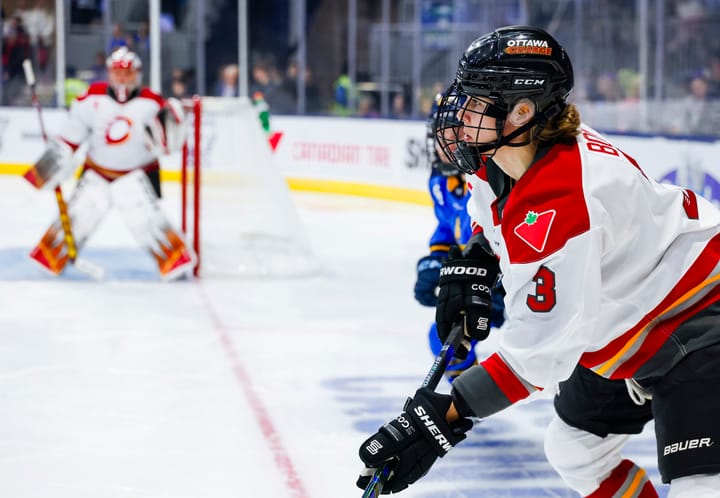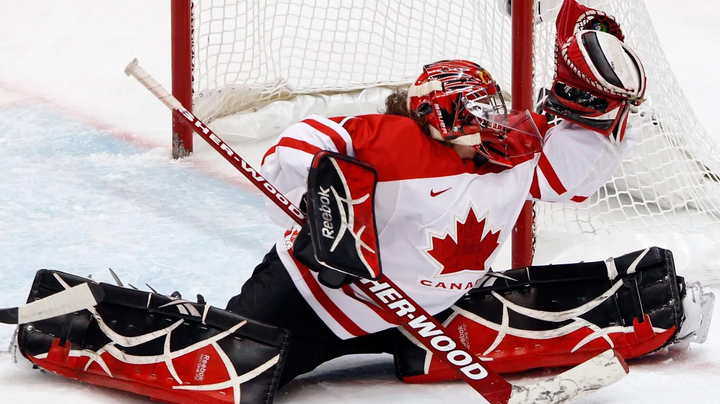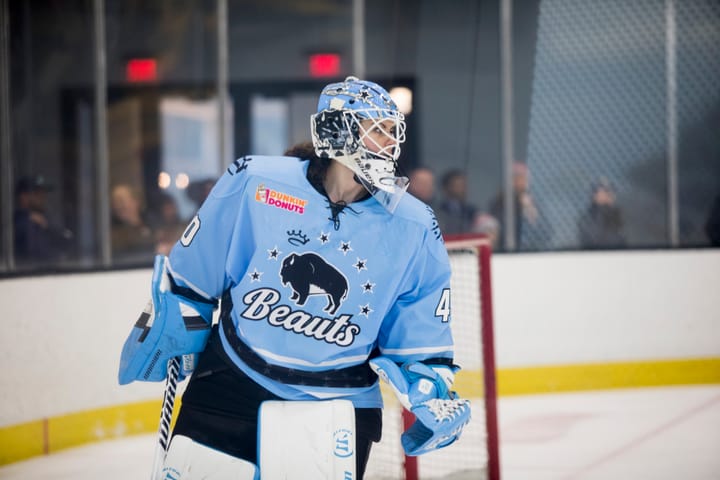IIHF partners with Hockey Canada for goaltending camp
The Ice Garden spoke to assistant director Lisa Haley on the goals for the camp and how the first event went.
A recent hockey camp in Spain showed why goaltending is the most important position in the sport of hockey, and particularly in women’s hockey.
Last month, the IIHF and Hockey Canada partnered to host a goaltending camp in Granada, Spain where 40 goalies from 16 non-North American countries attended. Top North American talent and coaching aimed to provide strength to a position that should help create more balance in a sport that almost always sees Canada and the United States face off in international gold-medal finals.
Lisa Haley, assistant coach with Team Canada at the 2014 Sochi Olympics and head coach of Toronto’s Ryerson Rams women’s team, served as the camp's assistant director while goalie coach Joe Johnston ran the on-ice instruction. International hockey talents such as Florence Schelling of Switzerland, Brianne McLaughlin of the U.S., Tuula Puputti of Finalnd, and Zuzana Tomcikova of Slovakia lent their expertise to fellow netminders from non-traditional hockey markets like Hungary, France, Austria, as well as the host country and a dozen others. Each goalie brought goaltending coaches from their respective countries so that lessons taught in Spain could be taken home.
18 goalies from 18 countries say hello and what they're doing at the 2017 IIHF Women's Goaltending Development Camp. RT if you like it! pic.twitter.com/uonkdlbzj5
— IIHF (@IIHFHockey) July 22, 2017
While the IIHF and Hockey Canada have been sharing hockey intel with non-North American countries with similar camps since 2010, this goalie camp was the first of its kind.
The following is a conversation with Haley.
What was your goal for this camp and why was goaltending targeted?
We're trying to expose players, coaches, and support staff to how things are being done in North America, to help them build their federations and close the gap with Canada and the United States, who can't always be in the women's final of the Olympics and world championships every year. That was the intent. This goalie camp was the first of its kind. The rationale for it is that it's the position where the biggest impact can be made. You may have an underdog team, but if you have strong goaltending, you can be competitive with the more skilled countries.
It was a great opportunity to get some exposure there. That was certainly one of the draws, to grow the game in a country where hockey hasn't traditionally been a hotbed. I looked at the goalie coaching staff that was there and thought it was the best opportunity to learn form the best in the game.
As a traditional bench coach, what did you learn about coaching goalies and the current state of the position?
For 21 years, I've been a bench coach, and I was blown away with how technical the position actually is. Goaltending is now down to a science.
What also surprised me was how much video coaching was useful for breaking language barriers. A lot of the girls spoke some English but there were some that didn't speak any. Some of the teaching points [on video] were in a universal language. There was lots of great debate among the goalie coaches on how to defend things like the low-post play. The sharing of knowledge was awesome.
You asked goalies interesting questions - here are the answers! From Granada and the camp back to you. Enjoy and RT if you like it! pic.twitter.com/84Y6Tvoq72
— IIHF (@IIHFHockey) July 25, 2017
What is Spain’s relationship with hockey?
The rink that the camp was held at hosts a senior men's team, the Granada Grizzlies. The players ranged in age from 14 to mid-30s, and they were our shooters all week. Their coach, he's actually the player/coach, is originally from the Czech Republic, he married a local woman and they've decided to raise their family there. He talked about sporting goods stores in Granada not having even one piece of hockey equipment.
The general manager of the rink is also on the men's team and his five-year-old daughter was an amazing hockey player for her age. I bet she's the best five-year-old player in all of Spain, male or female.
What’s the next step for this camp and goaltending development?
There are so few goalies and so it's such a key position. It does deserve its own niche in terms of development. It didn't take long for us to recognize an opportunity to leave a legacy for this camp, that it should happen every year, and that we give it our full attention so the IIHF sees the value in it and continues to invest in it. I think you'll see more of this in the future, that's my prediction.





Comments ()